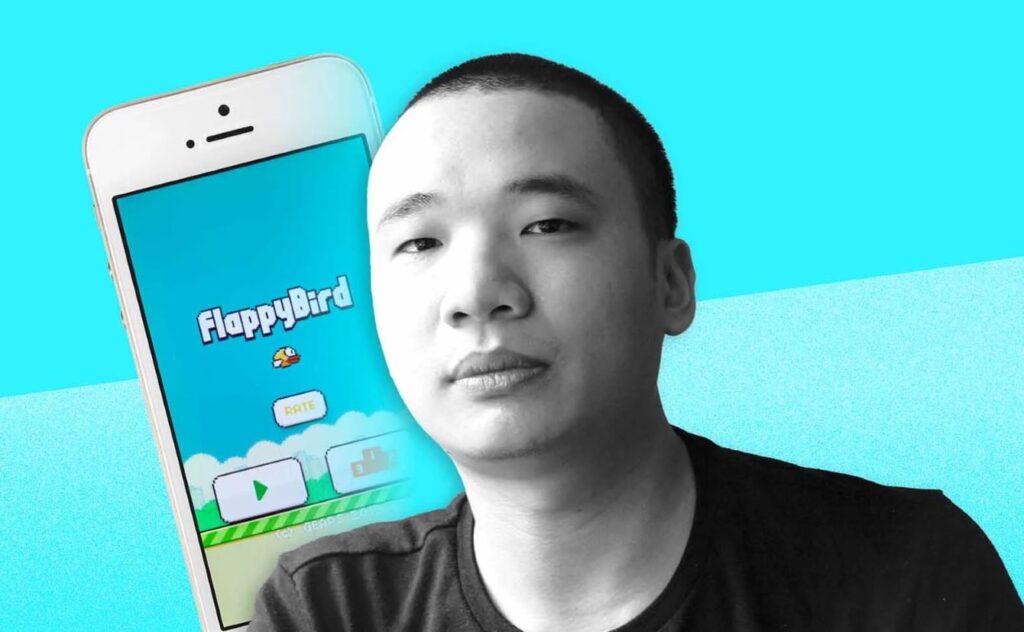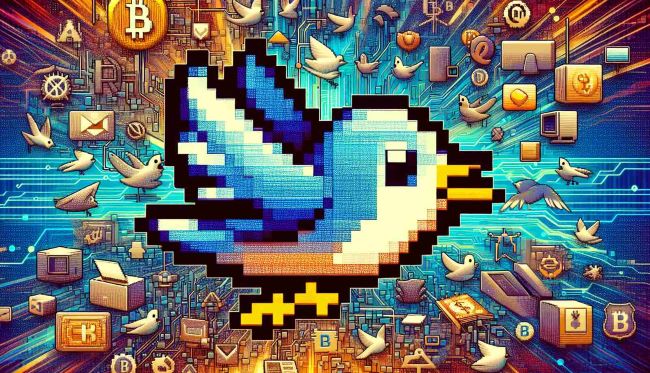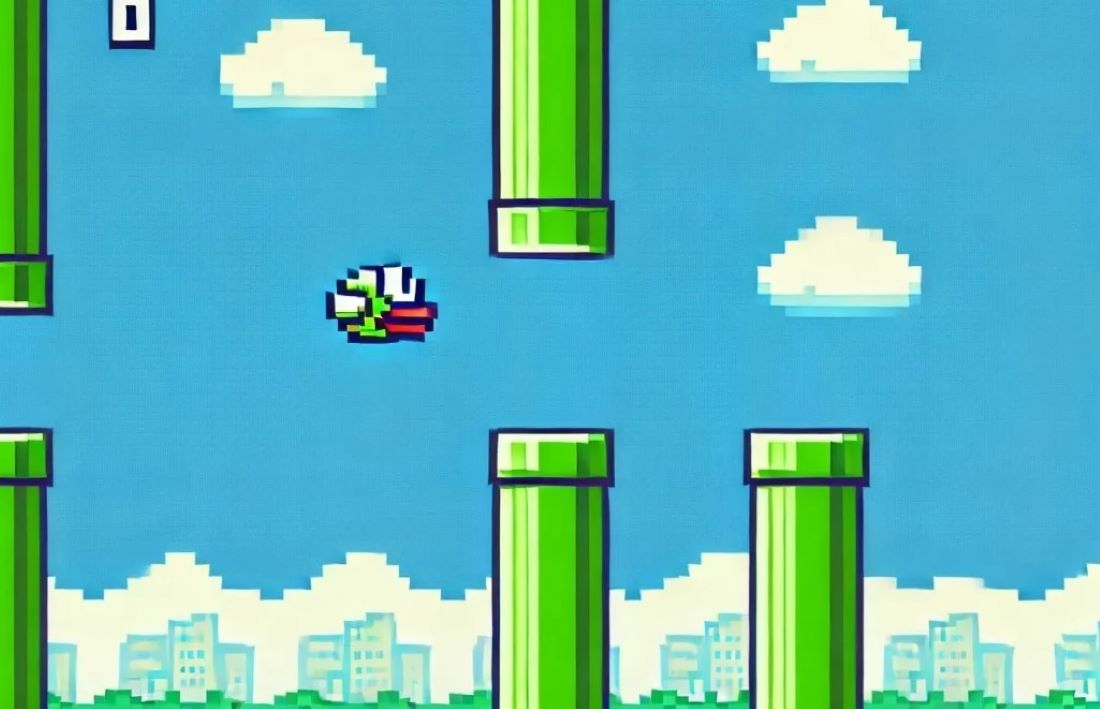Flappy Bird: An Exciting Challenge That Sparks Endless Nostalgia and Fun
Flappy Bird serves as a sentimental reminder of how simplicity can both test our intellect and win our hearts. This small pixelated bird made an amazing gaming experience by fluttering its way into millions of people’s lives with its vintage graphics and one-tap gameplay. What began as a little software became a global phenomenon, bringing gamers together via humor, frustration, and the desire to surpass that elusive high score.
Flappy Bird surprised the gaming community with its classic 8-bit charm and incredibly straightforward principles, demonstrating that even the tiniest, most bizarre concepts can succeed. Prepare yourself for a bumpy ride filled with giggles, annoyances, and the delightful triumph of a high score by grabbing your phone and warming up your fingers. Let’s get started!
The Rise and Phenomenon of Flappy Bird
1. The Unexpected Hit: How Flappy Bird Took Over the World

Flappy Bird appeared to be simply another app in a competitive industry when it first came out in 2013. This straightforward mobile game was created by independent game developer Dong Nguyen alone and lacked well-known sponsors or a dazzling marketing effort. But in a matter of months, it became a household name and shot to the top of the app store charts. Word-of-mouth and social media played a major role in its viral popularity, demonstrating that sometimes simplicity is more important than complexity.
Flappy Bird stood out for its ability to captivate players with a very straightforward idea: tap the screen to move a bird through spaces between pipes. It was a never-ending challenge with no levels, characters to unlock, or dramatic plots. Millions of people around the world couldn’t stop playing the game because it was so addicting, and they were always trying to surpass their friends’ or their own high scores.
Its ascent wasn’t without controversy, though. It was criticized for allegedly stealing visuals from Nintendo’s Super Mario series, especially the recognizable green pipes. The game’s popularity skyrocketed in spite of this, solidifying its status as a cultural phenomenon virtually immediately.
2. The Gameplay That Made Us Tap—and Rage
Flappy Bird seems ridiculously simple at first, but as soon as it started to play, it became evident how difficult it really was. Because each tap dictated the little bird’s flight direction, controlling it required almost perfect timing. Gamers had to strike a careful balance between flying too high and crashing into the ground or a pipe.
Its simplicity was what made it so appealing. There were no checkpoints to cushion your fall or power-ups to save you. Each game began the same way: if you made a mistake, you had to start over from the beginning. This ruthless simplicity turned became the game’s most frustrating feature as well as its greatest power. Players were forced to learn by trial and error, which made even small advancements seem significant.
In addition to being a part of the bundle, frustration was what attracted and retained customers. The urge to push yourself a bit more creates an irresistible feedback loop, regardless of your score—1 or 100. It was a game unlike any other that put endurance, accuracy, and patience to the test.
3. The Cultural Impact: Memes, Challenges, and Fandom

Flappy Bird was more than simply a game; it became a phenomenon. As players shared images of their best scores or bemoaned their worst failures, social media sites were inundated with jokes about the game’s brutal difficulty. Because of its notorious notoriety, it became a symbol of common annoyance and tenacity, binding people together via shared experience.
The challenge was immediately accepted by online communities, which led to contests to determine who could score the highest. Taking advantage of the game’s success, streamers and YouTubers made films of their attempts to learn its nearly impossible mechanics. These videos frequently blended humor with realistic defeat moments, which increased their viral popularity.
The craze even engulfed non-gamers. Everyone took their hand at this seemingly easy game, turning offices, classrooms, and even living rooms into makeshift battlefields. It was more than just a hobby; it was a worldwide fixation that cut beyond time and space.
4. The Developer’s Perspective: A Storm of Success and Stress
Flappy Bird’s designer, Dong Nguyen, had no clue the game would become so popular around the world. He spent only a few days designing the game as an independent developer from Vietnam, concentrating on making it simple and nostalgic. He sought to reproduce the allure of 8-bit graphics and simple mechanics by drawing influence from the aesthetics of vintage video games.
But the tremendous success came at a high cost. With Flappy Bird still making news, Nguyen was under constant strain and scrutiny. Even while he made a lot of money from the game’s advertisements, the developer became uneasy about the seemingly addicted behavior it encouraged. In early 2014, he removed the game from app stores after expressing sadness over the anguish it caused users.
Fans were astonished by this choice, which increased Flappy Bird’s demand. On resale websites, phones with the game installed were selling for thousands of dollars. However, Nguyen’s decision to step back from the limelight served as a reminder that viral celebrity frequently has drawbacks.
5. The Legacy: What Flappy Bird Left Behind

Despite its brief period of fame, Flappy Bird had a profound impact on the gaming industry. Developers were rushing to imitate its simple aesthetic and captivating gameplay loop, which led to a surge of extremely casual games. This phenomena directly influenced titles like Swing Copters and Crossy Road, which all learned from its success.
Additionally, the game changed the definition of “going viral” in the context of mobile apps. Its narrative served as a case study for developers, demonstrating that a straightforward concept, when done right, could enthrall millions of people without the necessity for sophisticated visuals or intricate gameplay. This made game production more accessible and encouraged independent developers to pursue their goals no matter their financial situation.
Ultimately, Flappy Bird made a lasting impression on popular culture. In addition to being a game, it is remembered as a moment in time—a brief burst of global player obsession and annoyance. Years later, it continues to serve as a reminder that even seemingly insignificant things can have a significant influence.



